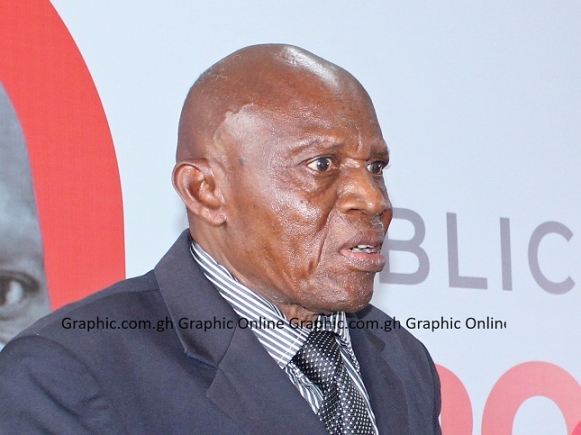A retired justice of the Supreme Court, William Atuguba has been very vocal recently in relation to the recent suit by the Majority Leader in Parliament Alexander Afenyo-Markin. Prior to judgement, he had argued that he felt the appropriate forum for the suit was the High Court and not the Supreme Court. He said this in separate interviews with TV3 and Joy News.
On Saturday (Nov 16], he granted another interview to TV3 and reiterated his position and disagreed with the Supreme Court for handling a case concerning the interpretation of Article 97(1)(g) and (h) of the 1992 Constitution.
In the TV3 interview aired on Satuday, Justice Atuguba argued that the case should have been referred to the High Court in line with constitutional requirements.
“The Supreme Court shouldn’t have entertained this particular case at all,” Justice Atuguba stated, explaining that the matter fell outside the court’s original jurisdiction.
He highlighted that Article 130 of the 1992 Constitution limits the Supreme Court to addressing constitutional issues referred to it by lower courts, rather than initiating cases directly.
The Supreme Court on Tuesday in a 5-2 majority decision upheld the suit filed Alexander Afenyo-Markin, who is the Member of Parliament for Effutu who also leads the New Patriotic Party (NPP) majority caucus in Parliament.
The Supreme Court indicated that a sitting MP who files to contest future elections under a different party or as an independent does not automatically lose their parliamentary seat.
Justice Atuguba said it was a procedural error for the Supreme Court to have bypassed the High Court to address the matter directly.
“Jurisdiction is a fundamental condition upon which a case stands. If it is absent, the court has no authority to proceed,” he said.
He cited Article 132, which mandates lower courts to refer constitutional interpretation issues to the Supreme Court while pausing their proceedings.
“When an issue arises in any court other than the Supreme Court, proceedings should be stayed, and the question referred to the Supreme Court. That was not done here,” said.
Justice Atuguba questioned the reasoning of the majority decision, calling it “superficial.”
He pointed out that the Constitution provides clear guidance on how such cases should be managed, emphasising that the High Court is the proper starting point for matters related to parliamentary disputes.
“This question of jurisdiction ought to have been regarded as settled long ago if the court was minded to follow precedent,” Justice Atuguba said.
He referenced earlier cases, such as the 1997 J.H. Mensah case, which confirmed the High Court as the appropriate forum for deciding the validity of parliamentary elections.
Justice Atuguba also criticised what he perceives as the politicisation of judicial processes. “At the height of all this pretentious discussion going on, there is no true legality involved—it’s just politics,” he said, warning that partisanship is undermining Ghana’s constitutional framework.
- Related articles
- FULL JUDGEMENT: 4 MPs seat ruling: Supreme Court gives reasons for decision
- An MP's seat becomes vacant when he decides to change political identity and remain in Parliament under new identity in same term - Supreme Court [JUDGMENT]
- Why 2 out of 7 Supreme Court justices ruled Afenyo-Markin's suit should have gone to High Court
- Varied reactions to Supreme Court interpretation of Article 97

